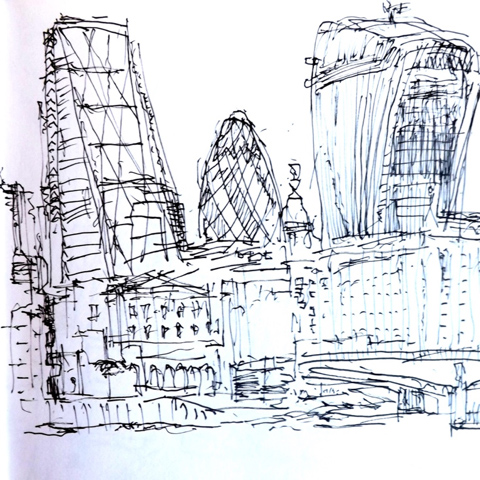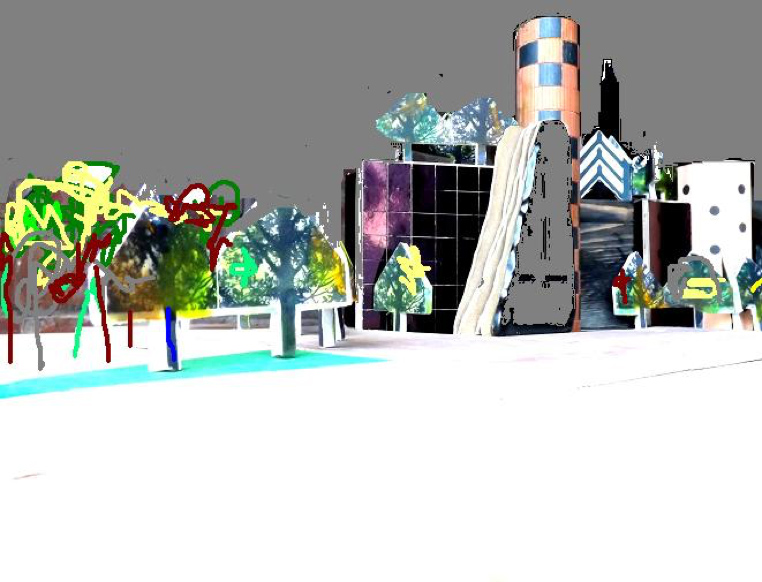Why did you choose to study at Manchester School of Architecture?
Partly because of the course leader profile/personality and his areas of interest; the Architecture and Urbanism blog was also an interesting platform for my return to writing.
I was working in a college in outer Stockport and felt that I would derive benefit from contact with Manchester city centre, which I would say has already happened. MMU struck me as an honest place, very grounded in professional practice and work related approaches to study.
I had recently taken early retirement from teaching and was happy to put something back into my own growth, because, as a teacher, I had given a lot to others.
Why did you choose this particular area of study?
Course leader profile and his focus of interest (Roman urbanism and the Italian Piazza). These had been important to me as a post grad. student in 1978 when I studied the Basilica of Sant’Andrea in Mantua, Italy for my first MA. I had also developed a career as a sculptor parallel to my career as a sixth form media teacher. The approach to planning and sculpture had certain processes in common that I was keen to take further in the field of contemporary architecture and city planning. My own painting and printmaking had also investigated urban forms. I had always maintained a working use of Italian and had continued reading academic literature which I am continuing to develop through my dissertation on Archaic Rome
What was your education history prior to postgraduate study?
Kings College School in Wimbledon up to 1973, then Cambridge University reading English and the History of Art from 1974 -1977. I took my MA in Art History at the Courtauld Institute, University of London in 1978. I then taught A level courses at sixth form colleges from 1978-20013. Of great importance was a year spent at Wimbledon Manchester School of Architecture 1981-82 where I studied Painting but also gained great experience in printmaking. This led to some successes in this medium during the great print “renaissance” in Britain from the 1970s to the emergence of digital printing in the mid 1990s. I was an A level examiner and I also had some freelance lecturing opportunities. I showed my art work occasionally at individual and group shows
What made you decide to continue with postgraduate study?
I enrolled on the second year of an A level Italian course in 2012-13 and realised that I still had sufficient intellectual resources to be able to tackle the literature required as part of an MA course. I was excited by the possibility of making a small contribution to a specific area of study. I looked forward to the opportunities for in depth research into the fields that interested me and for access to libraries. I was keen to find out how my fields of study had evolved since I left them in the early 1980s. I am very self critical and I had seen some of my peers possibly wasting their early years of their retirement so I thought that it was time to re-train, update my skills and try a new direction. I would like to continue into a form of employment after these two years on the MA at MMU
What aspects of the course do you enjoy the most?
I like the dissertation as it represents a colossal adventure into the literature of Etruscan Italy. The work is astonishingly difficult and I constantly re-evaluate the management of these tasks in terms of planning, organisation and time. I also like the urban planning component and the company of young architects, whose skills are very impressive. I have enjoyed some of our field visits to Manchester and London. The structuring of an annual professional symposium has also been a confidence building and been challenging in a positive way. I like the people on the course and they have been very encouraging as I find my way into the tasks.
What do you think of the facilities available to postgraduate students at the Manchester School of Architecture?
I am not really sure what these are. I have benefitted from both Manchester University and Manchester Met University libraries, but all the facilities I use are designed for undergraduates and serve very well for post graduates, I assume. The course I am taking is the only ‘exclusive’ post graduate facility.
How do you find the levels of teaching support you receive?
I like the process of public fora/dialectic. I am not encouraged to seek one to one tutorials. All our work is placed into a shared arena for group consideration. This is very appropriate for this level of study and adds to everyone’s stock of understanding, knowledge and experience. We all teach each other with the course leader in the role of academic advisor chairperson/moderator. It is a”system” which we get to know the mechanisms of soon enough. The Tuesday academic preparatory lectures consisted of 3 hour didactic delivery which was a bit of a ‘top down’ journey through the maze of academic research tools for every researcher in our field. I think it did not assist those delivering the course as much as they would like. It seemed to generate a lack of attendance as the weeks progressed as it was not at all interactive and fell short of making use of the tremendous range of skills sitting in the student audience of the lecture theatre.
How do you feel your qualification will enhance your career?
This is such a good question it deserves more analysis. I already have an MA and I do not think it did much for me as I used it to get a job in a sixth form college back in 1978. It created jealousies amongst my bosses and if anything was set aside as being of no value to the ethos of that specific sector. I think that the level of skills acquired on these courses requires more continuous evidence, because the MA is not the end of a route but the start of a new direction. Certain jobs definitely militate against “over qualified” post holders. The intellectual and emotional skills required to succeed in a certain fields are probably best learned in house. There is an argument for a sort of MA “minimum wage” but this is of no use if the employee is clearly in the wrong job.
Would you recommend students to complete a postgraduate qualification at Manchester School of Architecture?
Yes of course but this is not such a good question. I can only recommend my course and I cannot speak for the Manchester School of Architecture, except my daughter is currently on the MMU Art Foundation course in the same building and is thriving on the teaching and facilities! Maybe I should not speak for her.
If you could sum up Manchester School of Architecture in three words, what would they be?
Honest, grounded and professional.
Do you have a professional website link or blog you would like us to include as part of your profile?
www.dchandlersk2.weebly.com



